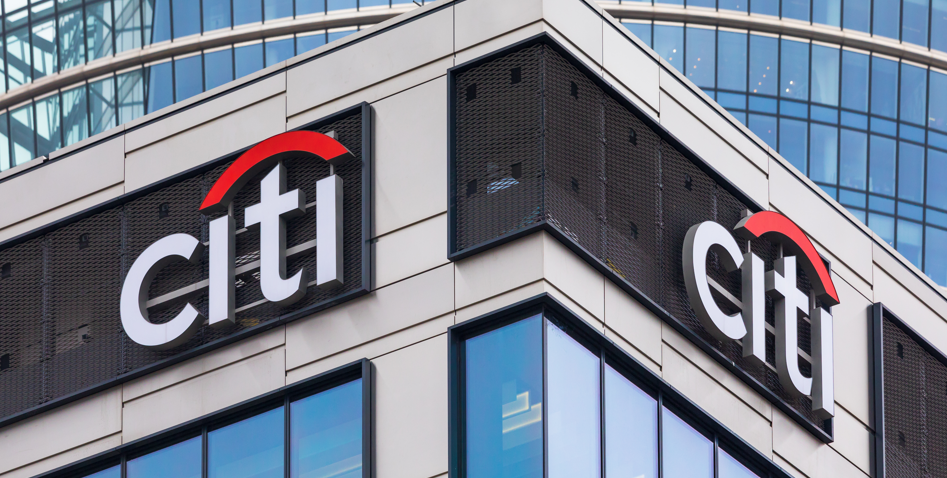The figure is certainly impressive – Visa, MasterCard and nine major US issuers agreed to pay retailers a total of USD7.25 billion in a law suit that alleged the payments industry conspired to fix interchange fees.
But the fact that the settlement contains little in the way of changes to the structure of interchange and the way in which the card industry sets the fees must be viewed as a major victory for the defendants.
Under the terms of the settlement, as released by Visa and MasterCard, Visa will assume USD4.4 billion of the total, or 67 percent, with MasterCard chipping in USD790 million, and a group of banks named in the lawsuit, which includes JP Morgan Chase, Bank of America and Wells Fargo, splitting the rest.
The settlement agreement also contains a distribution to some seven million US merchants in the class action lawsuit of an amount equal to 10 basis points of default interchange across all credit rate categories for a period of eight consecutive months. The eight-month period for the reduction would begin within 60 days after completion of the court-ordered period during which individual class members may opt out of this settlement, or approximately mid-2013, according to Visa.
The only other major changes ushered in by the settlement are a new rule allowing merchants to add surcharges to credit transactions should they desire to offset the cost of interchange, and an agreement that the card companies will meet with merchant groups that want to try to set interchange rates as an industry, such as grocers or drug stores.
The card companies are under no obligation to accept the proposed rates, though, so the agreement is nothing more than a statement of willingness to negotiate. There also is a cap on the checkout fee that limits it to the cost of acceptance, and the settlement requires notice and disclosure to the consumer at point of entry, point of sale and on the receipt.
How well do you really know your competitors?
Access the most comprehensive Company Profiles on the market, powered by GlobalData. Save hours of research. Gain competitive edge.

Thank you!
Your download email will arrive shortly
Not ready to buy yet? Download a free sample
We are confident about the unique quality of our Company Profiles. However, we want you to make the most beneficial decision for your business, so we offer a free sample that you can download by submitting the below form
By GlobalData
Network reaction
In a statement, Joseph Saunders, Chairman and Chief Executive Officer of Visa Inc. said: We believe settling this case is in the best interests of all parties.
We are comfortable with the terms, which we do not anticipate will impact our current guidance. Visa is well positioned to help drive the migration to electronic payments in the US and globally.
MasterCards reaction was equally positive, with the company stressing that the settlement clears the way for the cards industry to move forward free from the looming threat of future litigation over credit card interchange.
Our decision to settle is based on our belief that MasterCard and our stakeholders are best served by an amicable resolution, said Noah Hanft, MasterCards general counsel and chief franchise integrity officer. Although we have strong defenses to all claims, a settlement avoids years of litigation and uncertainties that are inherent in such cases. We believe that todays settlements should resolve all issues with the merchant community.
The Electronic Payments Coalition, which represents virtually all US payments processors, heralded the news of a settlement.
The long political conflict over interchange fees is finally over, settled by a well-established legal process, which brought together retailers and the card industry for a negotiated resolution, the coalition statement said. As part of the settlement, retailers negotiated the ability to charge their customers a checkout fee (merchant surcharge) at the register. Historically, banning surcharging has been an important safeguard, and it remains illegal in ten states. To the extent that retailers do assess checkout fees, we are pleased that the settlement includes important safeguards that will help to curb any abusive or excess checkout fees at the register.
The EPC also made it clear that the industry much prefers the legal settlement to Congress wading in to the issue as it did on debit interchange through the Durbin Amendment caps.
The deliberate and measured approach of the settlement process is in stark contrast to that of the Durbin amendment, which was passed in the dark of night with no review of its consequences and virtually no public debate, the EPC said. These government price controls shifted USD8 billion from banks to the retailers, with no evidence that consumers are seeing lower prices as a result. The legal process worked and should send a signal to Congress that it is wrong to pick winners and losers in a complex dispute between two industries.
The American Bankers Association (ABA) also expressed hope that the settlement will end the long-running acrimony between merchants and the card industry, and said that it is hopeful that retailers will pass savings attributed to the settlement on to consumers. However, the body did make a less than subtle shot across the plaintiffs bows.
Only time will tell if this history will repeat itself, as retailers continue to show little regard for consumers, the ABAs statement said. While the banking industry may not like all the results in this case, our industry is ready to put this matter behind us and continue playing a critical role in our nations economic growth and job creation.
Merchant still fighting
The leading merchant associations are clearly not finished fighting for more substantive process-oriented changes to interchange, however.
Mallory Duncan, senior vice president and general counsel of the National Retail Federation, which was not a party to the lawsuit but which has maintained a highly visible role in the dispute, made it abundantly clear that the settlement is the end of a single battle and not the entire war.
The money is significant but money is only temporary it is here today and spent tomorrow. What we need are changes in the rules that bring about transparency and competition that would be here for years to come, she said in a statement. The test will be whether the injunctive relief is meaningful. Unless it is, the card market will stay broken and neither merchants nor their customers will achieve a long-term benefit. In that case, it would be a missed opportunity.
The litigation over credit card interchange rates began in 2005 after several large US retailers, including Safeway Inc. and Kroger Co., sued MasterCard, Visa and several big banks, alleging they conspired to fix credit card interchange fees charged to merchants. The plaintiffs in the case also included the National Association of Convenience Stores and the National Restaurant Association.
The plaintiffs alleged that banks spun off MasterCard and Visa through initial public offerings in 2005 and 2006 largely to avoid the appearance of a monopoly. The litigation sought not only compensation but also asked the court to find the associations in violation of antitrust laws and sought a permanent fee reduction as well as new terms to foster greater competition in interchange rates. Given that ambitious agenda, it is clear that the card industry gave away very little in terms of wholesale changes to the interchange structure in the settlement.
The long view
The presiding judge – John H. Gleeson of the US District Court for the Eastern District of New York was the same judge, in the same court, that witnessed the first legal battle between retailers and the card associations that began in 1996 and ended in 2003. That case ushered in the historic settlement between the card associations and a number of merchants (led by Wal-Mart), which included a USD3 billion payment, and the unbundling of debit from credit.
Eric Grover, a principal at consulting firm Intrepid Ventures, said before this latest settlement was announced that the card companies would be happy with any settlement that left the basics of interchange in place.
The associations are not going to be eager to embrace any third-party input into interchange, he said. If a settlement were to emerge that institutes a short-term reduction and a cash settlement, theyd be pleased with that result.
Grover said that retailers, having prevailed on the debit side of interchange, are now framing the debate over what they call swipe fees a testament to the growth of their influence in Washington, and to the power of their argument that card transactions should be free to the merchant.
That argument may be nonsensical to card issuers and associations someone needs to shoulder the cost of issuance, risk reduction, fraud control and the transaction itself, after all but Grover said that the retail sector is adamant the costs be borne on the issuer side.
That would have profound effects on the cost and rewards offered to the consumer, he said, highlighting the issue of surcharges, which was the lone major concession made by the industry in the settlement.
Say, for example, that the card companies budge and allow retailers to charge customers an additional fee if they pay with credit cards, Grover said. That would have a downhill effect on transaction volume, which is going to eventually force issuers to slide more of the costs currently carried by merchants to the consumer, as cardholder.
That means rewards could be on the table, he said, as well as increased annual fees.
Just because the associations and issuers decry congressional action on interchange, it does not mean lawmakers will view the settlement as an end to the issue.
So far, no legislation on the subject has been introduced, and few observers expect it to be on the legislative agenda anytime soon. The debit interchange fight was simply too bruising.
There is a good bit of regulatory fatigue right now on banking issues, Grover said. The lawsuit on credit card interchange provides the industry with a bit of time to try to get the thing settled and cool down the retailers.
That said, the Consumer Financial Protection Bureau is still capable of tackling the issue without being pushed by Congress at all. Thus far they have made no signs of getting involved, but it is a wild card nonetheless, and one the industry has to remain mindful of as it reconfigures its card strategies.
Canadian concerns
Meanwhile, a similar fight brews in Canada, where the countrys Competition Bureau, an independent, pro-consumer law-enforcement agency, is seeking to remove some association rules regarding merchants’ ability to offer alternatives to credit card use and interchange, potentially freeing merchants to come up with their own interchange-free payment schemes.
The Competition Tribunal began holding formal hearings in May, which are expected to run well into July. The hearings are designed to evaluate the associations rules, which the agency challenged as anticompetitive.
On the opening day of the hearing, the Competition Bureau blasted MasterCard and Visas rules, describing the nations credit card market as a perverse place where shoppers who pay with cash or debit subsidise purchases made with credit cards.
That is because merchants pay fees for accepting credit cards and those costs are passed on to all consumers, the bureaus lead counsel Kent Thomson said in his opening statement to the tribunal.
Canadas domestic debit system, Interac, charges no interchange fees, and offers a cautionary tale for US credit card customers grown accustomed to free cards. Canadian debit consumers with basic bank accounts pay between USD0.60 – USD0.65 every time they use a debit card if they have more than 10-15 check, debit, ATM and other transactions in a month and the basic Canadian bank account carries about USD48 in annual fees.
Plus, with a basic account, they have to pay about USD48 a year in account service fees. Many Canadian consumers opt for a premium bank account that allows them to make unlimited debit transactions, but they pay about USD150 in account service fees annually. Less than a third of Canadian customers enjoy free checking, according to figures from the Canadian Bankers Association.
More than three-quarters of American consumers have free checking accounts, and the vast majority pay nothing for debit transactions as well. The industry dodged a major bullet this time on interchange rates, but there are no guarantees that the fight is over.







